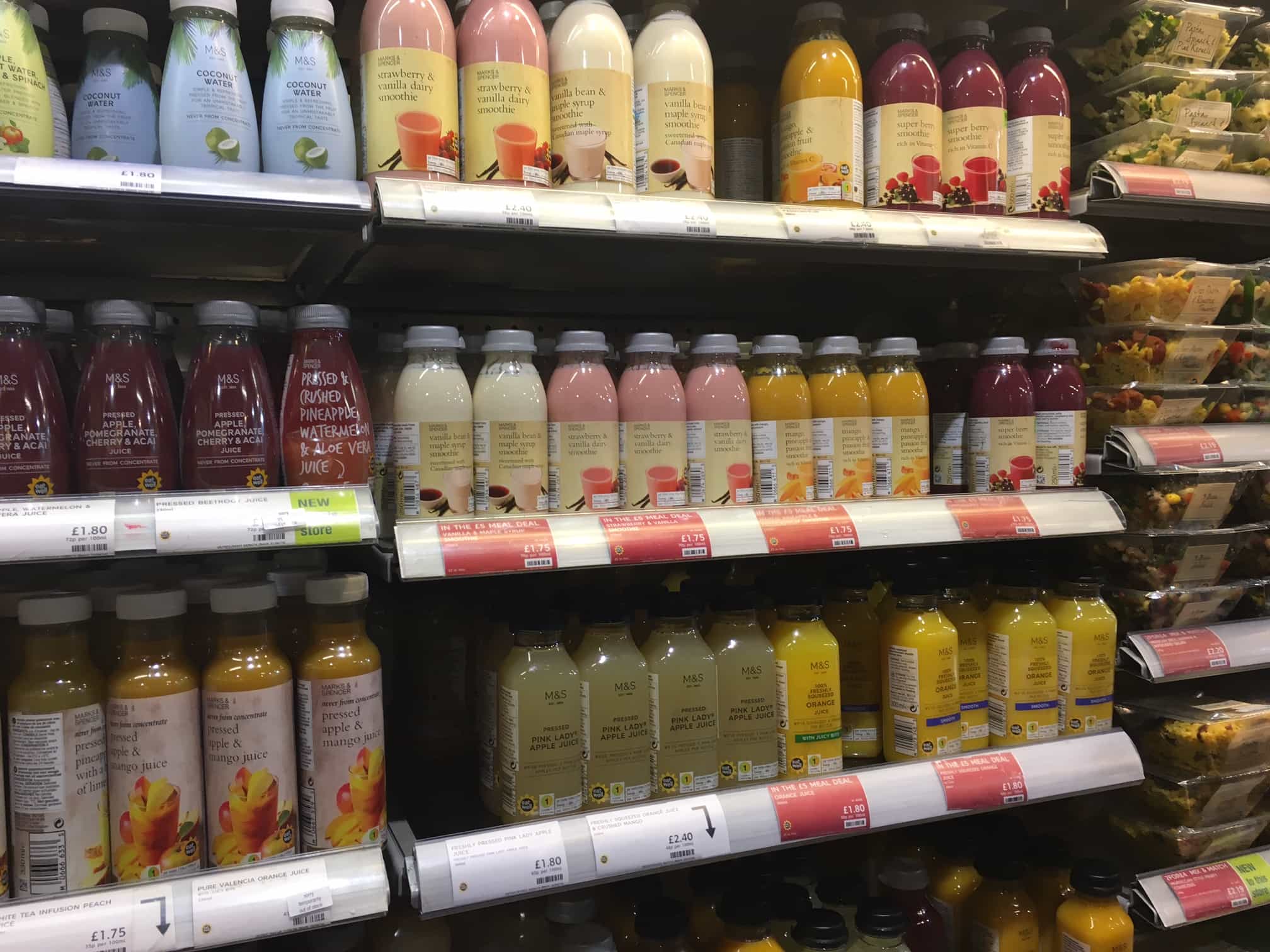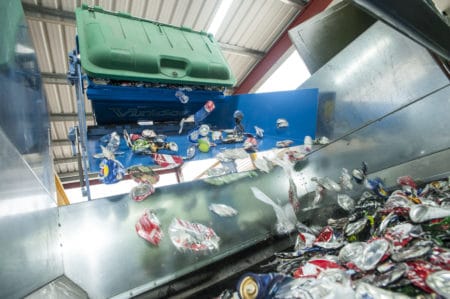Today’s announcement that there will be a Deposit Return Scheme in England, subject to consultation, has been welcomed by the waste management sector and charities although local authorities have expressed a more cautious approach ahead of the consultation.
Councils and several other respondents are concerned about how a DRS would tie in with kerbside collections with the Larac chair, Carole Taylor, warning that kerbside collections could be “cannibalised”. Charity lobbyists also responded with Keep Britain Tidy reiterating its belief that it would be of benefit to local authorities while the waste industry called for support for end markets and the Green Alliance backing a scheme for all drinks containers, not just on the go. (For more details of the plans see letsrecycle.com story)

The scope of the DRS system will go out for consultation
Waste sector
The Environmental Services Association (ESA), representing the waste management industry, said it welcomed the plans for a deposit return scheme although the scheme would need to work with other policies.
ESA’s executive director, Jacob Hayler said the scheme should be part of a package of measures. And, he focused in on a need for greater support for end markets for recycled materials, saying: “There is no point recovering all this material if there is nowhere for it to go”.
LARAC – local authorities
LARAC, which represents local authority recycling officers, referred to the incentives working group report published today alongside Defra’s announcement. The organisation said that the evidence in the report and is inconclusive on the benefits of a DRS in the UK, and the group emphasised there is a need to target on the go drinks containers.
LARAC said it welcomes a DRS wwhich focusses “much needed attention” on currently hard to recycle “materials on the go”, such as coffee cups, but raises concerns that seeking to capture drinks containers, for which comprehensive kerbside recycling schemes are already in place, “may undermine the integrity of the services that local authorities have developed over many years and at great expense.”

LARAC chair Carole Taylor has warned against cannibalising council recycling collections through a DRS programme
‘Cannibalising’
Carole Taylor, chair of LARAC, said: “We supports full producer responsibility and DRS could be a step in that direction. The evidence so far for the UK has not shown how a general DRS can be undertaken without cannibalising council kerbside material. Local authorities provide comprehensive collection schemes for the materials that a DRS would target, and our first step should be to put funds into these from producers to increase kerbside performance even further.”
Mrs Taylor continued: “If the public really have an appetite for DRS then it needs to be one that targets on the go material and helps address the litter problem that local authorities spend £700 million each year dealing with, valuable funds that could be better utilised on other local services.”
Other responses received are summarised below:
Alupro
Rick Hindley, executive director of the Aluminium Packaging Recycling Organisation, said it welcomed “any measure that effectively increases recycling and reduces litter. Aluminium packaging is already widely recycled; 70% of beverage cans are currently recycled, and independent research shows that in 12 years the existing collection infrastructure will deliver a 90% recycling rate for all aluminium packaging.”
Mr Hindley also emphasised the need to assess DRS with regard to kerbside collections. And, on litter, he said: “We believe a significant communication and education programme is required, if the habits of a few are to be changed. In the meantime, we are working with Government and others with regards reform of the UK packaging producer responsibility system.”
Ecosurety
Compliance scheme Ecosurety’s managing director, James Piper said: “ We welcome in principle any initiative aimed at improving UK recycling, however the real question now is whether the UK has the correct infrastructure, i.e capacity inside its recycling plants, to deal with the increase in glass, plastic and steel and aluminium cans that will be generated from such a scheme. We don’t want to see a situation whereby millions more tonnes of plastic are collected but sit dormant in warehouses, or worse, outside exposed to the elements, because there is nowhere inside the UK to recycle them.
“We agree with the position adopted by Defra’s own Voluntary and Economics Incentives Group, which suggests that the success of any deposit scheme will very much depend on the type chosen, that it needs to be well-designed and drawn up in consultation with businesses, in order to capture high quality material and provide a benefit.
Recycling Association
The Recycling Association chief executive Simon Ellin said: “Normally, we would welcome any proposal that in principle would lead to an improvement in quality. Clearly, a deposit return scheme for plastics bottles, glass bottles and cans is likely to lead to a purer stream of material to recycle.
“We need to understand what this will mean for the entire domestic recycling system.”
Simon Ellin
chief executive, Recycling Association
“However, we must be careful we do not throw the baby out with the bath water. We need to understand what this will mean for the entire domestic recycling system. For example, how will local authorities replace what is a valuable revenue stream for them and could this make collections of other material such as cardboard and paper uneconomic for local authorities? Could this then make the quality of other material worse if collection systems cannot be properly funded?”
Keep Britain Tidy
Keep Britain Tidy was one of the few organisations linked to the recycling sector to be very positive about the DRS idea, describing it as “fantastic” – a word also used by the Green Alliance.
Keep Britain Tidy pointed to its research which claimed that councils would benefit financially from the introduction of such a scheme.
Chief executive Allison Ogden-Newton said: “This is fantastic news for everyone who cares about the environment on their doorstep as well as our marine environment.
“Plastic bottles and aluminium cans litter our streets, parks and beaches and we know that they have a devastating impact on our wildlife and marine life.
Viridor
Waste management firm Viridor which also runs specialist recycling facilities said “There are many successful deposit return schemes operating in other countries, such as in northern Europe and Western Australia, elements of which could suit the UK. Any well-designed policy and regulation that will lead to an increase in recycling quality and participation is welcome, and Viridor looks forward to the detail and consultation.

Drinks can are likely to be covered by the DRS. Viridor has spoken of the need to make material available for reprocessing
“The success of a DRS will depend on the design and competitiveness of the chosen scheme, i.e. the scope of the materials to be included and how the material collected at retail points is then made available to the recycling and reprocessing markets.”
And, in a statement, Viridor added: “Forecast benefits from deposit return schemes have primarily focused on litter prevention. It will be important to model the actual capture rates and material flows to fully assess wider benefits for recycling and resource efficiency.”
Lorax Compliance
Michelle Carvell, director at environmental reporting provider, Lorax Compliance, said she was pleased the government is keeping the UK’s plastics challenge high on the environmental agenda.

All drinks containers and not just on the go, should be covered by the DRS, says the Green Alliance
“Many companies are identifying new ways to satisfy the growing environmental compliance expectations of their customers. A number of firms have already investigated how they could introduce plastic bottle deposit return schemes into their business model.
“In doing so, businesses have been reviewing how they can go beyond existing EU extended producer responsibility (EPR), which requires companies to pay fees for the amount of waste they place upon the market, to meet the demand. Bottle deposit return schemes fall under EPR legislation, but a direct introduction represents a desire for greater business accountability in plastics recycling and reuse.”
Green Alliance
Libby Peake, senior policy adviser at pressure group, the Green Alliance said: “The government has just taken a fantastic first step in the fight against marine plastic pollution. It’s been proved that well designed bottle deposit schemes increase the collection of plastic drinks containers, which are the largest single source of plastic litter entering the seas from the UK. Other countries using them have recycling rates approaching 100%. If we can reach the same level, it will not only benefit the environment but our domestic recycling industry too.”
And, Ms Peake dismissed any idea that the scheme should only apply to on the go containers, saying it should apply to all drinks containers.
Shaun Spiers, the executive director of Green Alliance, joined the organisation recently from CPRE which has long championed a deposit system, and with Keep Britain Tidy, the three charities represent a strong pressure group on government in favour of a DRS.
The post Applause for DRS but councils wary of impact appeared first on letsrecycle.com.
Source: letsrecycle.com Plastic



